Ancient system nourishes parched land

Located at the southern foot of the Tianshan Mountains, Turpan in the Xinjiang Uygur autonomous region, is one of the driest and hottest places in China. Its average annual precipitation is only 16 millimeters, while the evaporation rate measures 3,000 mm.
In order to make this vast desert into a comfortable and livable oasis, residents use the karez system, an invention that provides water through a technique derived generations ago.
This system consists of well-like vertical shafts connected to underground channels that surface in the form of ditches and small ponds.
The channels are supplied with water from the melted ice and snow on Xinjiang's Tianshan Mountains, while the underground structure of the wells stops water from evaporating. Conveying water from deep underground to the surface and traversing more than 5,000 kilometers within Xinjiang, the karez system is considered one of China's greatest antique man-made structures.
There is a local proverb saying: "Karez is our life. Without karez, there would be no Turpan, nor would there be an oasis civilization in Turpan."
For centuries, the wisdom behind the design of the wells ensured the people of Xinjiang remained well nourished. However, in the 1980s, the growth in demand for agricultural irrigation and the increasing usage of pumping wells lowered the water table and dried out the karez wells.
In 2006, the Xinjiang karez protection regulations were passed.
Since 2009, the central and regional governments have invested over 100 million yuan ($14.4 million) in rescuing and protecting more than 200 karez wells in Xinjiang.
Around 2017, thanks to years of protection efforts, the water flow from karez in Xinjiang started to increase, according to the Xinjiang Karez Research Association. Most of Xinjiang's karez wells are in Turpan, and by last year, 165 wells had been rescued and reinforced in the city.
As an important agricultural heritage, the karez wells are still playing a vital role in agricultural irrigation and even social life. Such wells can also be found in the provinces of Gansu, Shaanxi and Shanxi and in nearby countries, including Afghanistan, Iran and Pakistan.
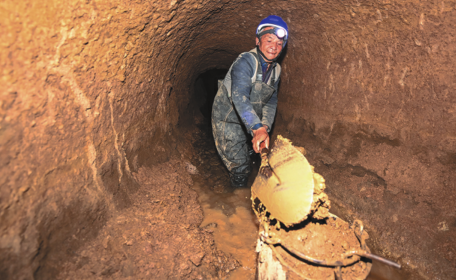
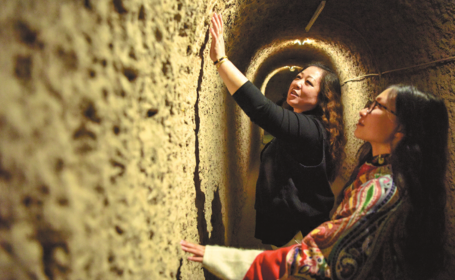

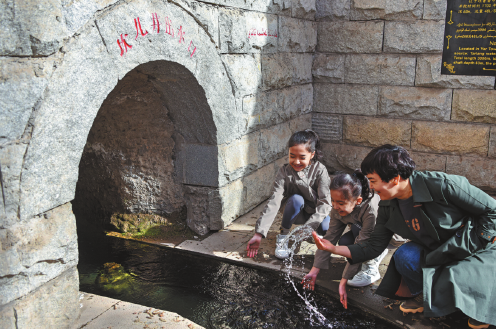
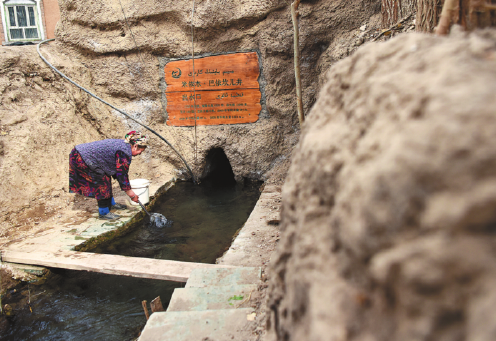

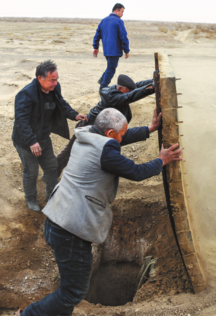
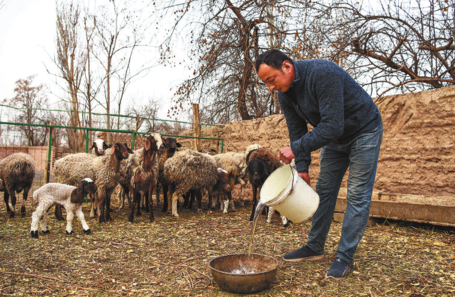

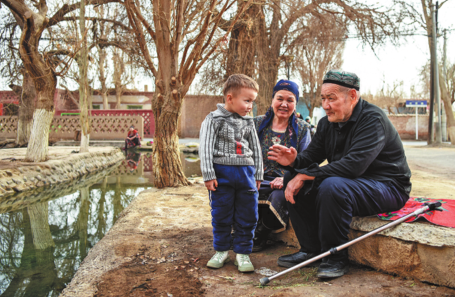
Today's Top News
- Lawmakers' thousands of proposals receive responses
- China warns Japan against interference
- Nation's euro bond sale shows investors' confidence
- No soft landing for Tokyo's hard line
- Commerce minister urges US to increase areas of cooperation
- Strong demand for China's sovereign bonds signals global confidence






























